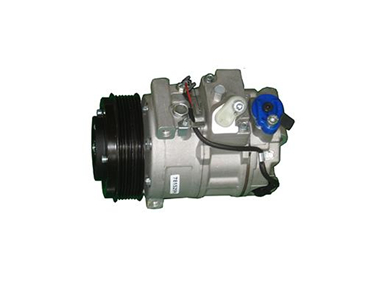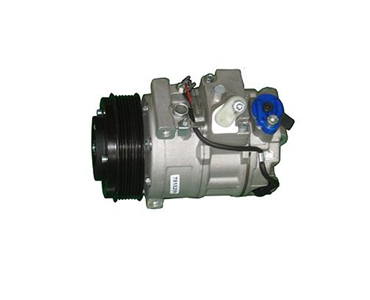
Routine Maintenance Tips for Auto Air Conditioning Compressor
Ensure optimal performance of your vehicle's air conditioning system with our comprehensive guide to auto air conditioning compressor maintenance. Learn essential tips and techniques for inspecting, cleaning, and lubricating your compressor to prevent costly repairs and keep your car cool during hot weather.
ZHONGCHENG
Maintaining your auto air conditioning compressor is crucial for ensuring optimal performance and longevity of your vehicle's cooling system. By implementing routine maintenance practices, you can prevent costly repairs and keep your car's climate control system running smoothly. In this comprehensive guide, we'll delve into essential tips and techniques for maintaining your auto air conditioning compressor.
Understanding the Auto Air Conditioning Compressor
The auto air conditioning compressor plays a pivotal role in the cooling process of your vehicle. It is responsible for compressing and circulating refrigerant throughout the AC system, which cools the air before it enters the cabin. Without a properly functioning compressor, your AC system won't be able to provide adequate cooling, especially during hot summer months.
Regular Inspection of Auto Air Conditioning Compressor
Regular inspections of the auto air conditioning compressor are essential for detecting any signs of wear or damage early on. Begin by visually inspecting the compressor for any leaks, cracks, or unusual sounds. Pay close attention to the compressor pulley and clutch assembly, as they are prone to wear and tear.
Checking Compressor Belt Tension
The compressor belt plays a crucial role in driving the compressor pulley. Over time, the belt may become loose or worn out, affecting the performance of the compressor. Use a belt tension gauge to check the tension of the compressor belt regularly. Ensure that it has the proper amount of tension to prevent slippage or failure.

Inspecting Refrigerant Levels
Proper refrigerant levels are vital for the efficient operation of the auto air conditioning compressor. Use a refrigerant pressure gauge to check the pressure levels in the AC system. If the pressure is too low, it could indicate a refrigerant leak or insufficient charge. Consult a professional technician to address any issues with refrigerant levels promptly.
Cleaning Auto Air Conditioning Compressor
Dirt, debris, and contaminants can accumulate on the surface of the auto air conditioning compressor, inhibiting its performance. Regularly clean the compressor and surrounding components using compressed air or a soft brush. Pay attention to the fins and coils to ensure unrestricted airflow.
Lubricating Moving Parts
Proper lubrication is essential for reducing friction and prolonging the lifespan of the auto air conditioning compressor. Apply a small amount of lubricant to the compressor pulley and clutch assembly according to the manufacturer's recommendations. Avoid over-lubrication, as it can attract dirt and debris.
Inspecting Electrical Connections
Faulty electrical connections can disrupt the operation of the auto air conditioning compressor. Inspect the electrical connections leading to the compressor for any signs of corrosion, loose wires, or damage. Ensure that all connections are secure and free from debris.
Testing Compressor Performance
Periodically testing the performance of the auto air conditioning compressor can help identify any underlying issues before they escalate. Use an AC manifold gauge set to measure the high and low-side pressures of the AC system. Compare the readings to the manufacturer's specifications to ensure optimal performance.
Replacing Auto Air Conditioning Compressor Components
If any components of the auto air conditioning compressor show signs of wear or damage, it's essential to replace them promptly. Whether it's the compressor pulley, clutch assembly, or seals, use high-quality replacement parts to maintain the integrity of the AC system. Consult a professional technician for proper installation and calibration.
Maintaining Auto Air Conditioning Compressor Filters
Many modern vehicles are equipped with cabin air filters that help remove contaminants from the air entering the cabin. Regularly inspect and replace these filters to prevent dust and debris from accumulating on the auto air conditioning compressor and other components of the AC system.
Conclusion
Proper maintenance of the auto air conditioning compressor is essential for ensuring the comfort and safety of your vehicle's occupants, especially during hot weather conditions. By following these routine maintenance tips and techniques, you can extend the lifespan of your auto air conditioning compressor and enjoy reliable cooling performance for years to come. Remember to consult a professional technician for any complex repairs or troubleshooting issues related to your vehicle's AC system.
-
What are the common failures of Auto Air conditioning compressor
 2021-11-29
2021-11-29
-
What should be paid attention to when handling refrigerant in Auto Air conditioning compressor
 2021-11-29
2021-11-29
-
What inspections need to be done before using Auto Air conditioning compressor
 2021-11-29
2021-11-29






